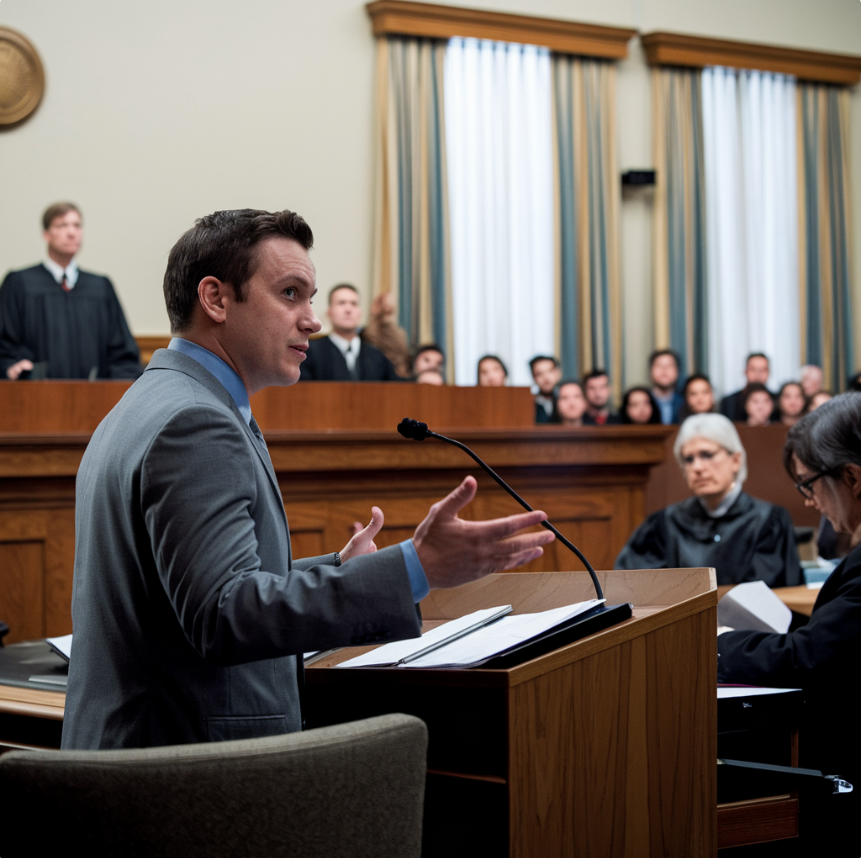False testimony or perjury, as outlined in Panama’s Criminal Code, is designed to protect the integrity of judicial proceedings by penalizing dishonesty from witnesses, experts, interpreters, or translators during legal processes. The following analysis breaks down the provisions of Articles 385 to 388 of the Penal Code of Panama, highlighting the implications for the various actors within the judicial system.
Article 385: Definition of Perjury
This article broadly defines false testimony, covering situations where a person affirms falsehoods, omits, or denies the truth, either in whole or in part, in their statements, reports, interpretations, or translations before a competent authority. The law imposes a prison sentence of two to four years for those who commit this crime.
However, if the perjury occurs in a criminal case to the detriment of the defendant or forms the basis for a judicial authority to issue a ruling, the penalty increases to four to six years. This harsher penalty reflects the potential for greater harm in criminal cases, where justice and personal liberty are at stake.
Commentary on Article 385
This provision safeguards the principle of truthfulness in judicial proceedings, emphasizing that the integrity of testimony is fundamental to ensuring fair trials. The increased penalty in criminal cases underscores the seriousness of tampering with justice, particularly when it may jeopardize someone’s freedom or reputation. This article is critical in deterring dishonest behavior that could unjustly convict an innocent person.
Article 386: Exemptions from Liability
Article 386 outlines two significant exemptions from punishment for perjury:
- A witness who, by telling the truth, would expose a close relative or themselves to serious danger to their liberty or honor.
- A person who, due to their procedural status, should not have been interrogated as a witness or had the right to be informed that they could refrain from testifying.
Commentary on Article 386
These exemptions recognize situations where telling the truth could pose a risk to the liberty or honor of a close relative or the witness themselves. This exception is essential in balancing the moral duty of truthfulness with the right to self-preservation and family loyalty. It also aligns with human rights principles, such as the right against self-incrimination.
Article 387: Corruption or Intimidation of Witnesses
This article deals with the manipulation of witnesses, experts, interpreters, or translators through physical force, threats, or bribes. Anyone committing this crime faces a prison sentence of two to three years, fines, or weekend detention if they induce false testimony or prevent the presentation of evidence. Additionally, any individual who accepts such bribes or benefits is subject to the same penalty.
Commentary on Article 387
This provision strengthens the credibility of judicial processes by punishing those who attempt to distort the truth through corruption or intimidation. Not only are the instigators penalized, but so too are those who accept the bribes. The penalties here serve as a strong deterrent against altering the justice system, which must be committed to seeking the truth.
Article 387-A: Special Circumstances Related to Organized Crime
This recently added article increases the penalties to four to six years in cases where perjury or obstruction of testimony is related to serious crimes such as organized crime, drug trafficking, terrorism, or human trafficking, among others.
Commentary on Article 387-A
The inclusion of this article responds to the elevated risks posed by organized crime and other serious offenses. Testimony in these cases can be crucial for achieving justice, and the potential for intimidation or corruption is much greater. By increasing the penalties, the law seeks to protect witnesses and preserve the integrity of judicial proceedings in high-stakes cases.
Article 388: Obstruction of Judicial Officials
This article imposes prison sentences of five to ten years for those who obstruct or hinder the duties of judicial investigators, the Judiciary, or the Public Ministry (Office of Public Prosecutions) through physical force, threats, or bribes.
Commentary on Article 388
Article 388 provides strong protection for judicial officials, ensuring they can perform their duties without fear of obstruction. This protection is essential for upholding the rule of law and ensuring that justice is not delayed or derailed by those seeking to block the enforcement of legal orders.
Conclusion
The provisions of Articles 385 to 388 form a comprehensive legal framework aimed at maintaining the integrity of testimony and judicial proceedings in Panama. The penalties serve both a preventive and punitive function, ensuring that all participants in the judicial process, including witnesses and officials, adhere to high standards of truthfulness and ethical conduct. The increased penalties for cases involving organized crime underscore the seriousness of perjury in contexts where human lives and social stability are at risk.
If you need to hire a certified translator or a Panamanian criminal lawyer, please call +507 6290-3468 or send a message to info@certifiedtranslatorpanama.com.

